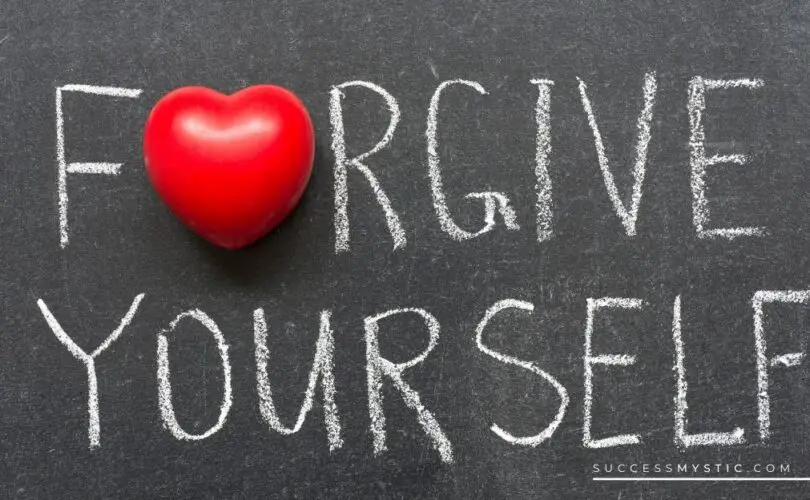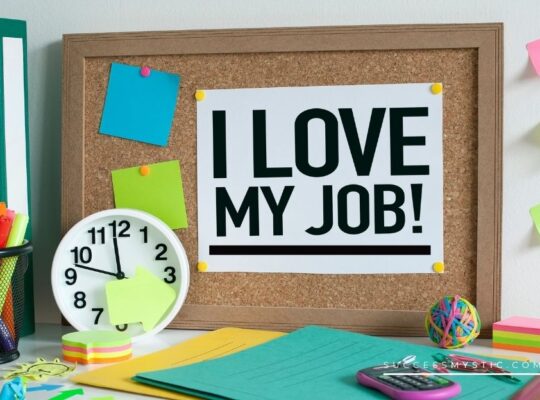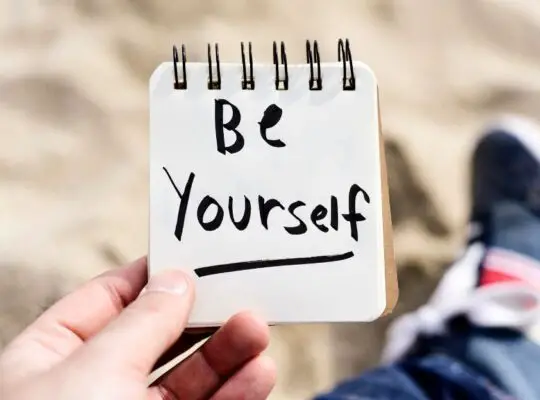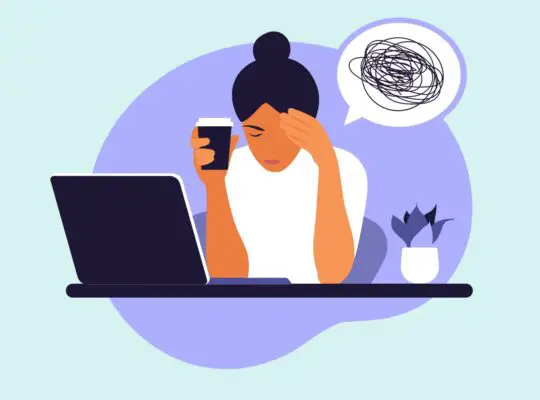The Idea Of Forgiveness
There has been a lot of discussion around the idea of forgiveness over the years. Forgiveness is often pushed as something you must do in order to move on. However, in the last few years, people have pushed back on this idea. You don’t have to forgive people who hurt you.
You don’t have to forgive people who harm you. That’s true, you don’t. That misses the point of forgiveness, though, true forgiveness is about allowing yourself to heal and leave the pain of the past behind. The most important forgiveness you can extend is to yourself. If you don’t forgive yourself, you are keeping yourself trapped in your pain and misery.
There is nothing worse than the feeling you experience after a defeat or the despair that comes from a mistake. Generally, our errors blindside us to the point that it takes months to recover.
We’ve all been there. Unfortunately, the majority of us have been there more times than we would care to admit. Every time you go through one of these mistakes, you wonder how you will ever recover. How will you ever forgive yourself for this?
It doesn’t matter if it seems to others like it’s a minor mistake or just a small failure, because to you it’s decimating. Every time it happens you feel as though you just don’t have to courage and strength to move forward and bounce back. You don’t have it in you emotionally, you don’t have it in you physically, and you certainly don’t have it within you mentally. Yet, you somehow do it.
You aren’t sure when it happened, but you suddenly realize you’re living life and you’ve mostly let go of it. Of course, you realize you haven’t forgiven yourself when another mistake rolls around, and you beat yourself for it and the ones that came before. You always promise yourself that you won’t allow it to happen again. You’re not going to make the mistake and if you do make the mistake, you’re not going to let it keep you down, but it does.
You can recover from mistakes and failures, whether they are in your friendships, romantic relationships, working life, or elsewhere. It might feel as though you’re going through dark times, you may feel as though you will never be able to forgive yourself, but you have to. You have to be able to look yourself in the eye in the mirror because no matter how small you feel, you have to reach deep within to pull out all your might.
That all sounds great, right? The big question is how? How do you stop getting stuck? You forgive yourself and you do it fast. Let’s talk about how!
How To Forgive Yourself And Do It Fast
1| Search for the Silver Lining
Be honest, how often do you really search for the silver lining? It’s not easy, no, but in almost every situation, if you look hard enough you will find (at least) one. Even in the gravest of mistakes, there is a silver lining.
Even in the most trying of times, in the deepest of pains, there is room for growth, there is a lesson, and that is your silver lining. You grow, you mature, and as you make mistakes and learn from them you gain a greater understanding of yourself, the people around you, of life, and of love.
When you make a mistake that costs you money, relationships, time, or otherwise, you have to search for that silver lining. If you’re in a situation where you were blindsided by someone wronging you, you can find a benefit.
What is it? You may look at the situation and think you gained nothing but an understanding of the situation, but that isn’t nothing.
Sometimes the passage of time is necessary to put space between you and the pain, it’s in those moments it’s easier to find the silver lining. For example, your now ex blindsided you calling your relationship off.
You were heartbroken, you felt betrayed, and the grieving process took time. It takes months to reach a point at which you recognize that no matter how it went down, it was the right decision. It hurt because you weren’t ready to let go. It hurt because you were unprepared for the end. That doesn’t mean it was the wrong decision. You have a lot to look forward to.
You have to think of these types of situations (or mistakes) as the fork in the road. You can only choose one path. Life boils down to a series of mistakes.
We stumble from one to another with the lessons shaping us in between. It’s easy to make mistakes, it isn’t as easy to bounce back. Aim to gain new understandings over your mistakes, find the silver lining, and move forward.
2| Reshape Goals
The pain of your failures can be used for a positive future. One of the ways in which to do this is to take the lessons you learned from failing and use it to reshape your goals.
What lessons were learned from the mistake or failure you just experienced? How can you take those learnings and apply them to your life now? More importantly, how can they help you redefine your needs and goals?
The experience you gain from making mistakes and experiencing failure can guide you in the right direction of your goals. Perhaps, you had a good idea of the goals you held dear, but you have watched it fail repeatedly.
It just never seems to pan out. Well, you can learn and apply it to future action to try to ensure it happens. Or, you can take the lesson and reshape your goals.
Maybe they need to be improved, maybe there’s something else that keeps grabbing your attention and is more relevant to you. Every action you take should push you further forward and in a positive direction.
It’s difficult to forgive yourself after you make what you view as a massive mistake. It’s difficult to heal from the pain and move beyond the hurt. A mistake should be viewed as leverage. Leverage to reshape your decisions, your path, and your goals. A difficult situation is more than just that, it’s an opportunity. An opportunity to reflect, to grow, and to become a better person. Failure happens to the best of us, there should be no shame in failing. What doesn’t happen for everyone, though, is the ability to learn and bounce back.
Take the time to physically write out what goals you have for the future. Take your mistakes and leverage them to achieve your goals. What is it you want to achieve? Why do you want to achieve it? How can those lessons from your past inform your future? How can this motivate you?
Your goals shouldn’t be about earning more money. Your goals shouldn’t be about buying more stuff. Your goals should be about achieving meaningful progress in your life. Without meaning, you are less willing to do what it takes to achieve it. Fuel your fire with the flames of your past mistakes.
3| Your Values
It’s time to reassess your values. It’s one of the most effective ways to forgive yourself. Your mistakes can inform your future by allowing you to assess your values through the lens of failure.
We’re going to talk a lot about leveraging your mistakes. That’s what this is. What have your mistakes and failures taught you about what you truly value in this life?
It’s difficult to move on from the pain of your failure when you haven’t sorted out your values. Without values, moving forward is a difficult proposition.
As an example, imagine you made some relationship mistakes that resulted in the demise of your marriage. How can you use those mistakes to evaluate your values to ensure you are better served in the future?
Often, the lives we lead are reactionary. We don’t assess what we value, we don’t think deeply about what you need, we react in the moment. Our subconscious mind may have a better idea of what we truly value, but you can’t leave it hanging there.
You have to get in touch with your subconscious and pull those values into the conscious mind. That’s why writing your values out and keeping them in order of priority is important. With every step you take, your values can remain in your mind. Every decision you make can reflect those values.
There is no greater way to forgive yourself and forget than to lead a value-driven life. It’s fine to make mistakes, it’s less fine to repeat them because you didn’t take the lesson.
4| Gratitude
If you are looking for a tool to help you forgive yourself for the failures and mistakes in your past, then focusing on gratitude is an excellent place to start.
Here’s the thing. It’s a lot easier to focus on what you don’t have. It’s easy to drown in a pity party and compare what you have or what you’ve done to the people around you.
If that’s your mindset, then you will consistently paint yourself in the role of victim. It’s time to take responsibility for your life, and you can start by forcing yourself to look at the positive. You have to take off the programming of society to highlight what you have instead of what you don’t have.
You have far more than you realize, but it’s difficult to see when you’re caught in a cycle of comparisons. The water is running, electricity is on, not only do you have a roof over your head, you have a front door that locks, and a vehicle that runs. There is food in your fridge and snacks in the pantry. Your basic needs are met, that’s a pretty good start.
Do you have your health? You’re alive right now. Do your friends and family surround you, especially when you’re in need? You have your wit, intellect, logic, the ability to see, hear, taste, touch, read, speak, and write.
There’s a lot to be grateful for.
Once you look at your life through the lens of gratitude, you will never run out of the incredible things in your life you should appreciate. The more you focus on gratitude, the easier it is to shove everything else away. Life is abundant, you have to intentionally think of it that way.
You don’t have to start right now, but a gratitude journal is an excellent idea for everyone. Take time out of your day to record a few notes on what you have to be grateful for. It’s a helpful way to push past the mistakes you’ve been holding onto.
5| Commit To It
What’s that famous saying about repeating the same thing and expecting a different outcome being insanity? It wasn’t Albert Einstein who said it as is often attributed, but whoever said it, they have a point.
It’s insane to think you can make a mistake, repeat it time and time again, but get the result we want. What’s the purpose of a mistake if you don’t learn from it and make changes to ensure the outcome changes? You can’t blame anyone else for your repeated mistake.
What you can do is commit to changing your behavior in the face of mistakes and commit to doing things differently. If you make a mistake, you have to forgive yourself, change your behavior, and move forward with change. It really is as simple as that.
You can forgive yourself and think you have moved beyond the mistake, but if you don’t change your behavior it will always circle back around. When that happens, it becomes more and more difficult to forgive yourself.
When you give in to pressure or bad habits, you have to recognize your mistake and make changes to ensure you don’t repeat the behavior. If you can’t change, you idle in neutral. You may even find yourself repeating mistakes and slipping into reverse.
You don’t want to be in that position, always be moving forward! Take the time to recognize what behavior resulted in the mistake. If it’s on you, then commit to doing things differently.
If it’s down to someone else, look at what contribution you made to the mistake and alter your behavior as much as possible. If you can do this, then you can feel comfortable forgiving yourself and progressing.
6| A Shift In Priorities
Have you been living your life stuck in autopilot? It’s easy to do and it’s even easier to completely lose sight of your priorities. If you’re not sacrificing your values or time to make someone else happy, you’re caught up in the busyness of life. It’s difficult to look after yourself when everything else is demanding your time and attention. When you have the weight of the world, the expectations of others, stress, and anxiety sitting on your shoulders, the only way out is through collapse or implosion. Unless there’s another way.
I don’t want to sound like a cliché by hanging a giant neon sign above the term self-care, but here we are. If you want to truly take care of yourself, if you want the power to forgive yourself, and move on, then you have to shift your priorities and start looking after yourself. You can do for others, but you can’t do it at the expense of yourself.
Take time out for yourself, whether it’s heading to the movies, grabbing your favorite lunch, or just slipping away to take the world’s hottest bubble bath. Indulge in time on your own, to relax, re-energize, and refresh.
Winning is fun, chasing achievements is great, but that’s not everything that life is. Don’t worry about impressing everyone else, start worrying about yourself. Focus on what matters, that begins with looking after yourself.
It’s much easier to forgive yourself and move on when you aren’t drowning in stress and anxiety.
7| Altruism
Do you know what helps you extend forgiveness to yourself? Moving forward by looking outside of yourself. Look for opportunities to help people. Whether it’s time, energy, or money, you have plenty to offer your community.
You can still practice self-care and also give of yourself. There is something profoundly life-altering when you shift your focus to serving others. Right now, it might sound impossible. That’s likely because you haven’t yet taken care of yourself. Once you are in the swing of self-care, the idea of helping others will be much easier to envision.
Chaos is all around us, be a positive influence. When you wake up every morning, ask yourself what you can do to help someone else. There are plenty of people in your community struggling, what can you do to ease their pain?
8| Let Go
Take a deep breath, relax, and let go. Life can be serious, but that doesn’t mean you have to take everything quite so seriously. Remember that whatever you’re going through right now, someone else has been through it. In fact, there are people going through it right now and people will go through it in the future.
That might not make it feel easier right now, but it’s important to remember that your problems seem so large because they are the problems that belong to you.
Your mistakes only seem gargantuan because you are the person making those mistakes. If a friend approached you to discuss the problem you are currently dealing with, what advice would you dispense? It wouldn’t seem as bad if it were happening to someone else, so put yourself in an outsider’s position as you deal with it. It’s not a big deal, they’ll get through it.
If you can see clearly enough to offer that type of advice to others, why can’t you give yourself that same advice?
More importantly, why can’t you take that advice? When it’s happening to you it feels as though the world is ending, everything is crashing down around you. It isn’t, though, is it? Not really. Just take a deep breath, relax, and let it go.
If you were to sit down and look back at the biggest mistakes you have made in your life, do they seem important now? Or, do you recognize that you became a better person because of them? More than likely it’s the latter.
They have a way of working themselves out. The problem is when we don’t let go soon enough. You have to forgive yourself and you have to do it fast before the hurt and pain are allowed to fester and foment.
Your pain won’t just disappear by itself. You have to commit to letting go. Make a conscious decision to forgive yourself and move forward. It’s a choice you can make, why wouldn’t you make the decision to stop reliving your past? Why would you want to dwell on the details of that when you can let go? Forgive yourself now and start living again.
9| Express Pain
One of the difficult aspects of failure to let go of is the hurt and pain. It’s natural to experience disappointment and possibly even grieve what you’re giving up. Part of forgiving yourself is expressing the pain you are going through.
Get it out of your system, vent to a friend, write about it in a journal, just work through the pain to process the hurt you are experiencing because of your mistake.
Often, it’s this pain that holds us back from self-forgiveness and keeps us rooted in place. Use the future as the impetus. What can you do better next time? What is holding you back?
10| Don’t Play The Blame Game
Do you play the blame game? If it’s not yourself you’re blaming, it’s someone else. At no point do you look at the impersonal and realize life is littered with mistakes. It’s okay to explore failure and assign blame if you are using it to learn lessons and move forward.
What’s not okay is assigning blame and directing all your energy at being mad about it. Your feelings count don’t think that your feelings override logic. Your feelings are important, but they aren’t the be-all and end-all. Life is messy, the quicker you get used to that and learn how to move forward the better.
There is always a choice in life, and you can choose to take responsibility for yourself and your happiness and forgive yourself to move forward. Or, not.
11| Today & Tomorrow, That’s It
Let go. Stop reliving the mistakes of your past and focus on today and tomorrow. Remember that story you keep telling yourself? The one where you’re the victim of your own mistakes and you can’t undo it and move on? It’s time to rewrite it.
Start focusing on today and tomorrow, when you do you will have far less time to dwell on the past. If you find the past creeping into your mind, you can acknowledge it by looking for a lesson before returning to the present.
You might find it easier to handle if you have a cue prepared for these situations. For example, as you struggle to get to sleep because there’s a slideshow in your mind repeating all your past mistakes, take a deep breath and say It’s fine, that was in the past, I am now focused on my happiness going forward.
If you allow yourself to be overwhelmed with hurt feelings, then there won’t be enough room for positivity and growth. Make a conscious decision to let go of the past and put your energy into finding joy today and tomorrow.
Forgive Yourself And Do It Fast
Most people think it’s easier to forgive themselves than it is to forgive others. Well, most people would be wrong. Even when you tell yourself that you’re over it, you rarely are. It just seems simple to shrug and say it’s fine and you’re moving forward.
When you forgive yourself (or others) you aren’t condoning a mistake, you’re simply saying you recognize that moving on is a necessary part of healing.
Otherwise, you sit in your pain and hold onto stubbornness and choose to punish yourself. It isn’t just punishing yourself for failure, though. It goes much deeper than that because by failing to forgive yourself you choose to stay stuck and by staying stuck you prevent yourself from achieving your dreams.
One simple act of forgiveness frees you to pursue your goals. You’re still a good person, even if you make a mistake or experienced a failure that ultimately hurt. To move on, to push forward, to embrace joy, you have to let it go and forgive yourself.
Forgiveness is a concrete way to let something go. The most important aspect of moving on is extending forgiveness.
You might have blame to take but taking blame doesn’t mean beating yourself up and trapping yourself in misery. It means learning the lessons, applying them, and moving forward in love and peace.
Are you stuck right now?
Are you wondering where to turn?
It’s time to turn inwards.
What anger or pain are you holding onto and holding against yourself? You might think you have resolved your issues, but there’s a good chance the reason you’re stuck is that you haven’t truly forgiven yourself for some previous infraction.
Take a long look at the issues you’re dealing with in your life right now. Trace them back as far as you can and determine what forgiveness you need to extend to yourself.
Why would you actively choose to indulge pain and suffering, when you can choose to move on by simply forgiving yourself? Everyone makes mistakes, don’t allow them to make you a prisoner.







